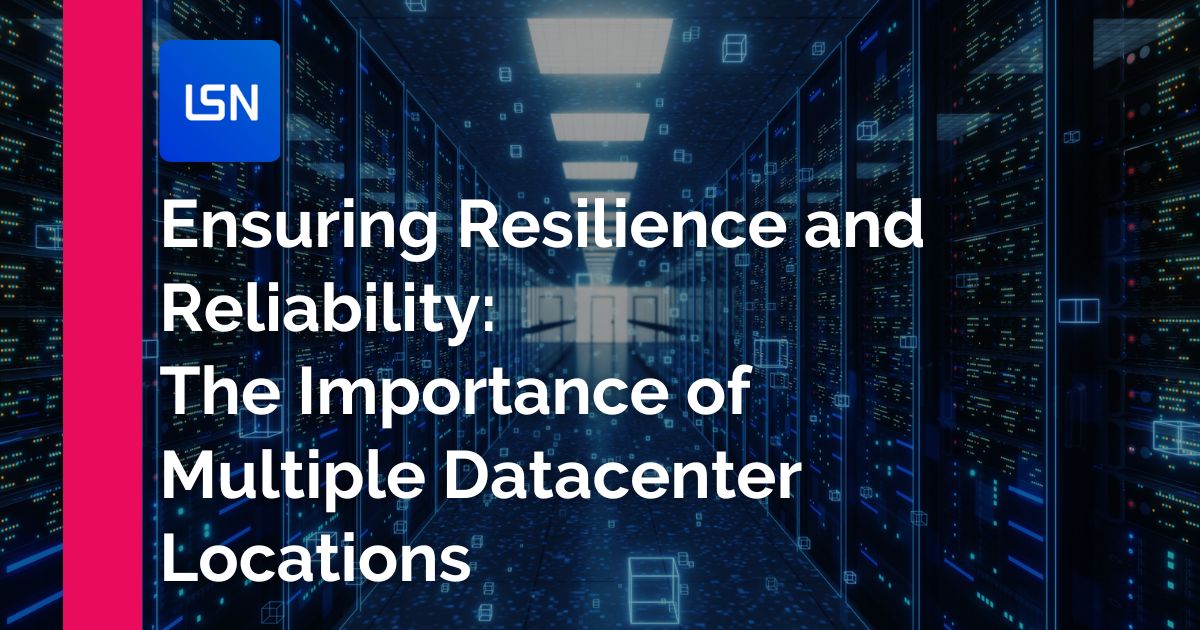Aug 22, 2023
Ensuring Resilience and Reliability: The Importance of Multiple Datacenter Locations
s there a benefit in having more than one datacenter location for your infrastructure? What are the benefits of it?

In the ever-evolving landscape of technology and data-driven businesses, ensuring the resilience and reliability of online services has become paramount. Among the critical factors that determine the success and continuity of any cloud hosting company is the strategic placement of multiple datacenter locations. Companies like Limestone Networks, a leading Global Bare Metal Cloud cloud hosting provider, exemplify the significance of having data centers distributed throughout the entire United States and the world. Let’s explore the reasons why multiple data center locations are essential for a robust and future-ready infrastructure.
Disaster Recovery and Business Continuity
Natural disasters, power outages, or other unforeseen events can significantly impact the operations of datacenters. By having multiple data center locations geographically dispersed, a company can create redundancy in its services. In the event of a disaster or failure at one location, the other datacenters can seamlessly take over, ensuring continuous service availability and minimizing downtime. This comprehensive disaster recovery strategy provides peace of mind to clients, assuring them of uninterrupted service delivery regardless of external circumstances.
Reduced Latency and Improved Performance
In today's fast-paced digital world, every millisecond counts. Data center locations that are geographically closer to end-users can significantly reduce latency and improve the overall performance of applications and websites. By establishing datacenters in various regions of the U.S. and worldwide, hosting companies can offer low-latency connections to customers across the globe, ensuring a smooth and responsive user experience. Whether it's an e-commerce website, a streaming platform, or a financial application, reduced latency translates into happier customers and increased user engagement.
Compliance with Data Regulations
Data regulations and privacy laws vary across different countries and regions. For companies that deal with sensitive data, such as personal information, financial records, or healthcare data, having data center locations in compliance with specific regional regulations is crucial. By strategically placing datacenters in various locations, hosting providers like Limestone Networks can ensure that their clients' data remains in compliance with relevant data protection laws, thereby maintaining data integrity and building trust with their customers.
Scalability and Flexibility
As businesses grow and expand, their hosting needs often change. Multiple data center locations provide the flexibility to scale resources and adapt to fluctuating demands. Hosting companies can easily allocate resources among datacenters to meet the specific requirements of their clients. This scalability and flexibility empower businesses to respond swiftly to market changes and handle surges in traffic without compromising on performance or reliability.
Global Reach and Market Expansion
For businesses aiming to expand their reach globally, having data center locations in different regions can be a strategic advantage. By catering to customers in their local regions with low-latency services, companies can enhance customer satisfaction and increase their global market share. Furthermore, localized datacenters can help mitigate any issues related to internet censorship or restricted access in certain countries, ensuring a consistent service experience for users worldwide.
The importance of having multiple data center locations cannot be overstated for a bare metal cloud hosting company and even more so for its clients. The strategic distribution of data centers throughout the entire U.S. and the world not only ensures disaster recovery and business continuity but also improves performance, complies with data regulations, enhances scalability, and supports global expansion. As technology continues to advance, hosting companies that embrace this multi-location approach will stand out as pioneers in providing reliable, resilient, and future-ready cloud infrastructure to meet the demands of the digital era.